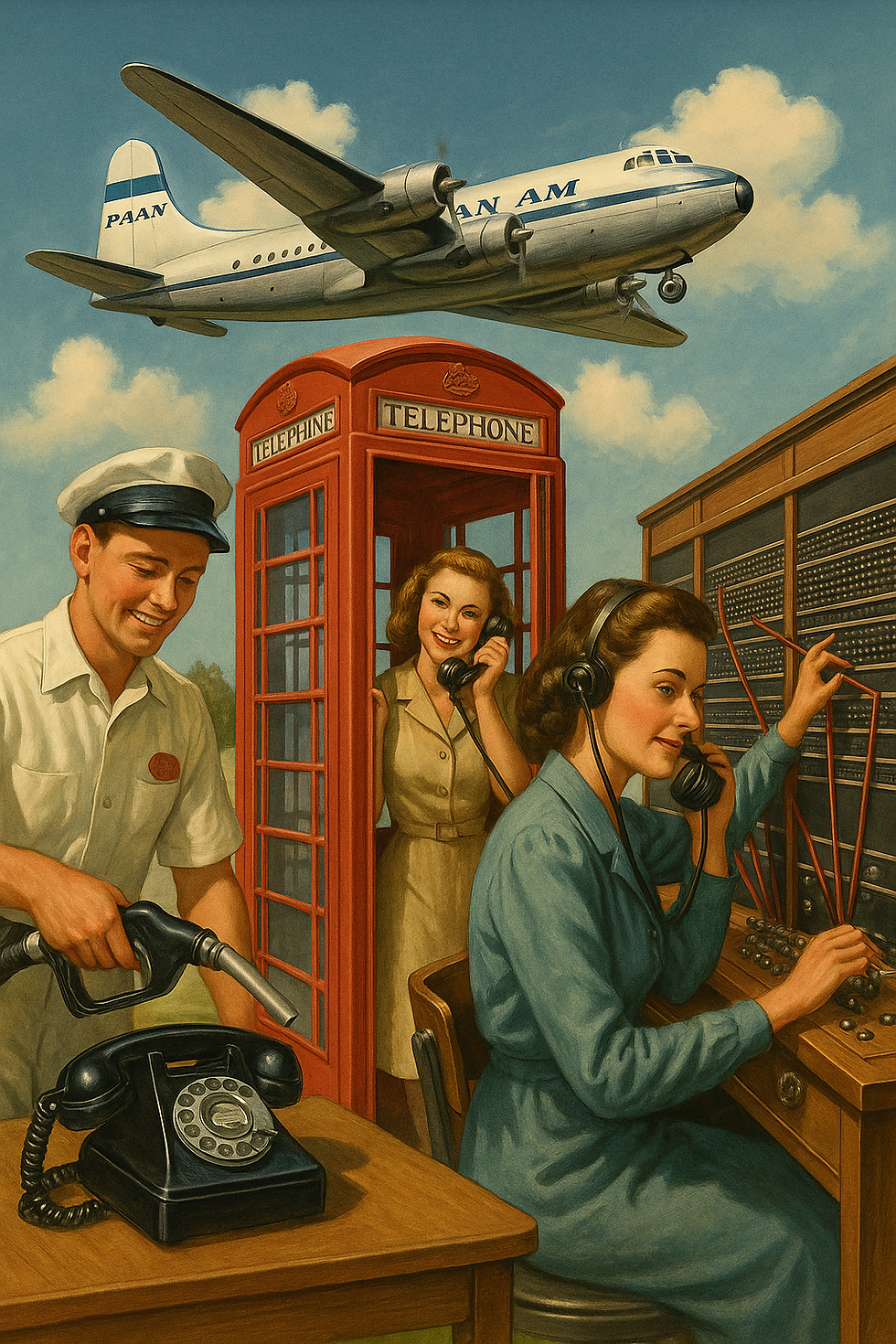I Had an Apple II — And It Blew My Mind
- Bill Travis
- Aug 3
- 2 min read
Remembering My First Computer — the Apple II
Back in 1977, I bought one of the first Apple II computers. It had a glowing green screen, a cassette drive, and a whole 20 kilobytes of memory — which isn’t even enough to hold one modern photo.
The Apple II cost $1,298 at the time, which translates to roughly $7,000 in today’s dollars. That could buy you a high-end iMac, an iPhone, and probably a VR headset — all at once.
But that Apple II? It blew my mind.

The Power of VisiCalc and a $10,000 Offer
What really sold me on the Apple II was VisiCalc, the world’s first spreadsheet program. You’d type in a number and watch — slowly but surely — as the rest of the sheet updated. By today’s standards it was as slow as molasses, but at the time, it felt like futuristic wizardry.
One day, I was in a Radio Shack when a young programmer overheard me asking about accounting software. He leaned in and made me an offer:
“I could build you a custom accounting system for your Apple II. It'll only cost you $10,000.”
I smiled, thanked him, and politely declined. That was more than the cost of the computer itself — and back then, $10,000 could buy you a car, an office, or a small house.
Still, the idea that a computer could be customized, could think for you, and could be programmed to run your business… that idea stuck.
From the Apple II to AI
Over the years, I used computers for flight scheduling, music arranging, business work, and now — writing, legacy preservation, and even AI-driven storytelling. What started with 20KB of memory has evolved into terabytes of cloud storage and instant access to tools that would’ve seemed like science fiction back then.
The Apple II marked the beginning of that journey.
You Never Forget Your First Computer
Even now, I remember the hum of the monitor, the clack of the keys, and the quiet amazement of watching a number ripple down a VisiCalc spreadsheet.
That old Apple II may be long gone — but it started something that’s still unfolding.



Comments